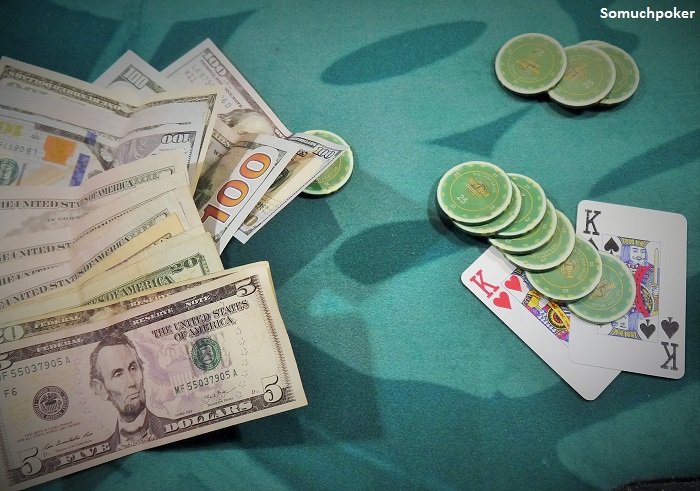The idea of friends financially supporting each other through difficult times has always been closely linked to poker. In a profession where variance can sometimes take a heavy toll on players, it can be beneficial for players to help each other absorb the damage from difficult patches of form and misfortune.
Unfortunately, while it is clearly very important for poker players to preserve a trustworthy reputation, there will always be some players who do not repay the faith of their friends in the correct way. With this unavoidable truth in mind, we present to you our top five reasons for caution when it comes to friends, money and poker.
RULE #1 : If you don’t know, don’t lend
On the surface, this may seem obvious, but people can be quite convincing and persuasive when they are trying to get their hands on money. A player may look slightly familiar to you, may claim to have many successful players as close friends, or may claim to be a winning player who has hit a difficult run of results, but if you don’t feel certain about who you are talking to, don’t lend them money. Many people who are in a situation of needing to borrow money in the first place will not be good investments, so always be cautious. Also, remember that poker is a close-knit community, so if someone is coming to you and you are fairly unknown in the poker world, they may be asking you because everyone else has refused to lend them money.
RULE #2 : Make sure someone has money to move before giving them cash
In the world of poker, it is common for players to have cash tucked away in online places such as poker sites, Skrill, Neteller or even just a bank account. If they state that they do have money, but just don’t have cash on them and need to borrow some, they should be perfectly able to send you money online in exchange for cash. If a player tells you that they do have money, but no cash on them, but they then make excuses as to why they can’t transfer money to you online right now, they are probably not trustworthy.
RULE #3 : Successful doesn’t always mean trustworthy
Just because someone can prove to you they are a consistent winner at poker, it doesn’t necessarily mean you will be repaid when you lend that person money. Some players may have a sports betting problem on the side, an expensive cocaine habit, or any number of money draining issues. So even if you know them to be a successful poker player, don’t be afraid to ask around to find out whether they have a good reputation or not.
RULE #4 : Understand the transaction you are involved in
It’s important to know from the outset, what transaction you are agreeing to, and the terms of it. Financial agreements in the poker world can take different forms which also involve very different responsibilities:
- Are you gifting someone a small sum of money without wanting to be repaid? If so, make sure that you don’t expect anything in return.
- Are you lending money? If so, you should set a clear timeline for when you expect the money to be repaid, and agree upon any interest before handing over the money.
- Are you staking someone for a specific tournament, which means paying a percentage of a tournament buy-in in exchange for a percentage of any winnings? If so, is there a markup, meaning you have to pay slightly more to reflect the edge your player has over the field? Does the staking agreement cover rebuys in the tournament?
- Are you swapping percentages of your own action with another player? Make sure that if you are exchanging percentages of your winnings, you can feel confident that the other person won’t try to duck their financial obligations if they win big.
You need to be clear about all these points before money changes hands. If someone wants to borrow money from you but is vague about the terms of the transaction, be careful.
RULE #5 : It’s ok to say no
If the poker community is still fairly new to you, there may be a situation where you feel like you should help someone out in order to make friends and contacts or to be accepted as one of the community. While this is understandable, be advised that you have every right to say no to a transaction, and nobody should think any worse of you for it. View each financial decision in terms of its value as an investment, and don’t allow yourself to be coerced into something if you don’t feel comfortable making a transaction.
Always remember that poker is a community where money circulates based on trust and reputation. Be very clear about how you put your own money to use, nurture a good reputation for yourself and make sure that you don’t lend or borrow your way into trouble. This is an integral part of poker that is as important as any strategic concept.
Article by Craig Bradshaw



